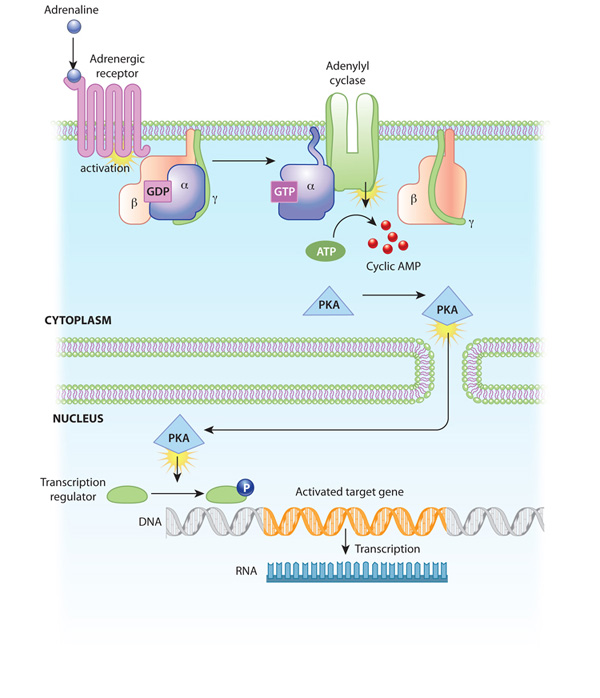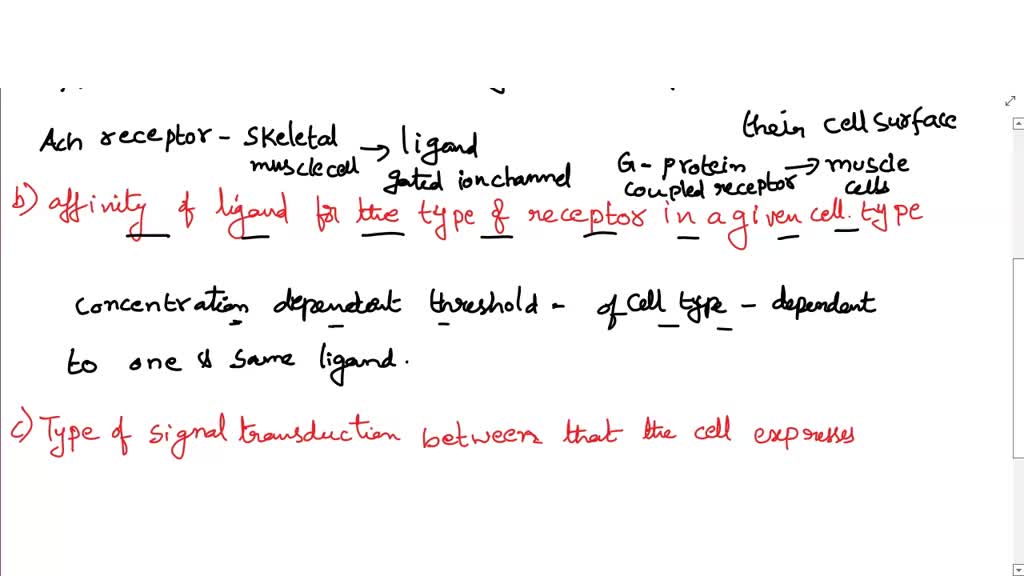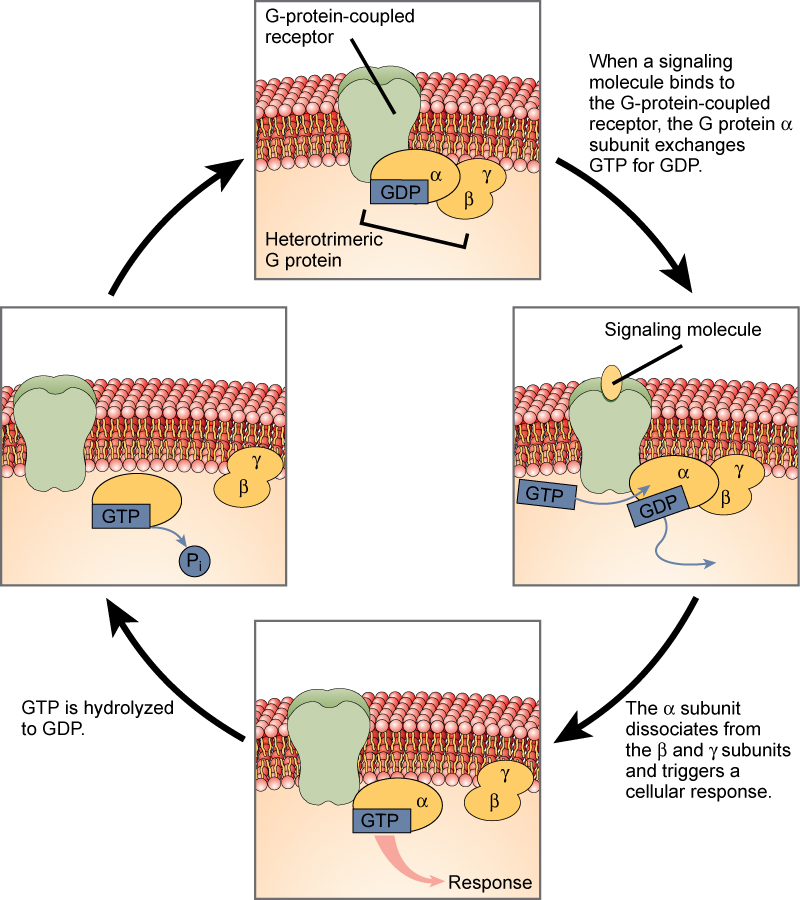Antwort Why do cells not respond to every signal? Weitere Antworten – Do cells respond to every signal Why

Cells do not respond to every signal. Cells only respond to signals that they have the receptors to detect. This is how specificity occurs even though all cells in the body are exposed to the same hormones in the blood. Cell signals in the environment bind to receptors on the surface of cells.Different cells have different patterns of carbohydrates on their cell surfaces. Nuclear envelope proteins vary from cell type to cell type, and this means that cells respond to signaling molecules differently. Different types of cells possess different proteins.Often, the signaling cell and target are different cell types. Cells, however, can also send signals to other cells of the same type, as well as to themselves. In such autocrine signaling, a cell secretes signal molecules that can bind back to its own receptors.

What happens to cells that do not have enough energy : Hardest hit are organs and tissues that need a lot of energy, like muscles, brain, heart, kidneys and liver. When the energy supply slumps, cells can become damaged or destroyed.
What happens when cells do not respond to the signals that
When cells do not respond to the signals that regulate their growth, they are called cancer cells. Cancer is a disorder in which the body's cells could no longer control growth. As a result, these cells replicate uncontrollably and form tumors, which are masses that can damage other tissues that surround it.
Why does testosterone not affect all cells : Only target cells possess the phosphorylation cascade uniquely activated by testosterone. Only target cells possess the intracellular receptor able to bind with testosterone.
Cells have proteins called receptors that bind to signaling molecules and initiate a physiological response. Different receptors are specific for different molecules.

Not all cells can “hear” a particular chemical message. In order to detect a signal (that is, to be a target cell), a neighbor cell must have the right receptor for that signal. When a signaling molecule binds to its receptor, it alters the shape or activity of the receptor, triggering a change inside of the cell.
When cells don t communicate
But even so, cell communication can break down. The result is uncontrolled cell growth, often leading to cancer. Cancer can occur in many ways, but it always requires multiple signaling breakdowns. Often, cancer begins when a cell gains the ability to grow and divide even in the absence of a signal.Cells have proteins called receptors that bind to signaling molecules and initiate a physiological response.As we have just seen, cells require a constant supply of energy to generate and maintain the biological order that keeps them alive. This energy is derived from the chemical bond energy in food molecules, which thereby serve as fuel for cells.
For example, liver cells and muscle cells contain a lot of mitochondria. Muscle cells are assiciated with a large number of mitochondria as they require more ATP (energy) to function than other cells. They need this because of their frequent contraction and relaxation, which requires more ATP than average cells.
What stops the response in cell signaling : The binding of cellular receptors to the extracellular matrix initiates a signaling cascade within the cell. However, if the cell moves away from the extracellular matrix, the signaling ceases, and the cell undergoes apoptosis. This system keeps cells from traveling through the body and proliferating out of control.
What determines whether or not a cell will respond to a particular signal : Signal transduction pathways start with signal recognition. Here, the signals in the environment are perceived by proteins on the cell surface, called receptors. The specific receptors a cell has determines which signals it can detect and thus respond to.
Why do all cells not react to hormones
So why do hormones affect only their target cells in particular tissues Because only those target cells have receptors for that particular hormone. Some hormones bind to receptors on the surface of target cells. Others enter the cells and bind to receptors in the cytoplasm or nucleus.
Hormones mediate changes in target cells by binding to specific hormone receptors. In this way, even though hormones circulate throughout the body and come into contact with many different cell types, they only affect cells that possess the necessary receptors.Because only those target cells have receptors for that particular hormone. Some hormones bind to receptors on the surface of target cells. Others enter the cells and bind to receptors in the cytoplasm or nucleus.
Why do cells not express all genes at all times : The regulation of gene expression conserves energy and space. It would require a significant amount of energy for an organism to express every gene at all times, so it is more energy efficient to turn on the genes only when they are required.





